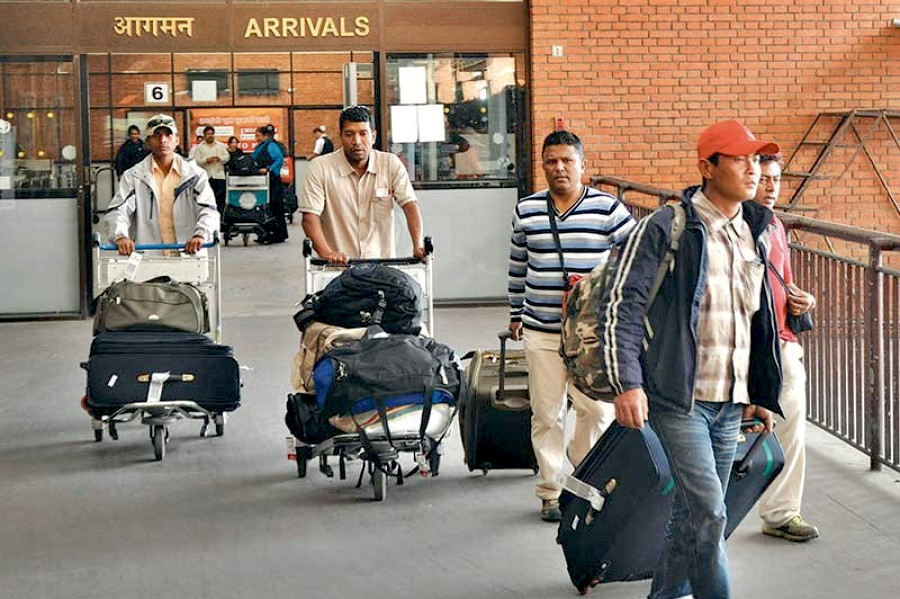National
Workers can now renew their labour permits in destination countries
New provision is expected to provide respite to thousands who had to return to Nepal for their re-entry permits.
Chandan Kumar Mandal
In the country’s two-and-a-half decade-long history of foreign employment Nepali migrant workers employed overseas, for the first time, will be able to renew their work permits in the country where they work.
This means they will not have to visit government offices back home in Nepal for re-entry work permits, the government’s permission to work abroad.
“Re-entry permits can now be received anywhere in the world,” said Tikamani Neupane, spokesperson for the Department of Foreign Employment. “All applications for work permits will now be handled online.”
The department will launch the distribution of the re-entry labour permits from a Nepali mission abroad next week.
“Nepali missions abroad will soon start distribution of the labour permits,” he said.
The online application system is being upgraded so that even Nepali missions can provide labour permits to visiting Nepali migrants in their respective countries, Neupane told the Post.
The move is expected to provide relief to tens of thousands of workers who had no option but to return to Nepal and visit the Foreign Employment Office in Kathmandu, or one of the provincial offices to obtain re-entry labour permits.
“The new system will save time, money and effort,” said Neupane. “This is an important beginning aimed at helping Nepali migrant workers working abroad. It also gives them the freedom of applying and receiving their work permit from anywhere in the world.”
A Nepali migrant worker receives a work permit for a maximum of two-years. However, a majority of workers stay on and continue to work for the same employer even if their work permit has expired and the initial contract period with the employer is over. Such practice resulted in a large number of workers overstaying their permits.
Overstaying workers are not included in the government’s compensation scheme. Migrant workers, who overstayed abroad, and their families, are not considered eligible to receive various financial support provided by the government if the worker comes across any tragic incidents such as death, injury or illness.
The official believes allowing workers to get re-entry work permits in their destination country will bring down the number of Nepali workers overstaying their permits. Their visas may be extended and their labour contracts may be extended by their employers but they would not have the Nepal government-issued permits to work abroad.
“Workers overstaying is a major concern. With the new provisions, we hope that workers will renew their labour permits soon after their first permit expires,” said Neupane.
The government had rolled out the plan to issue re-entry labour permits online in 2019, following the fifth amendment to the existing Foreign Employment Regulations. However, the plan could not take off as there was no mechanism available for online payment to buy insurance.
The Department of Foreign Employment has resolved this issue of insurance by bringing on board online payment gateways to make it possible for payment of insurance premium online.
“Having re-entry permits issued from labour destination countries makes it much easier for Nepali workers,” said Swarna Kumar Jha, a labour migration researcher. “The worker can get the renewed work permit along with a return ticket when they plan to return home. In such situations, they will not have to visit labour offices during their job break, nor do they have to face the rush of getting it days before their flight or deal with any agents.”




 19.12°C Kathmandu
19.12°C Kathmandu














